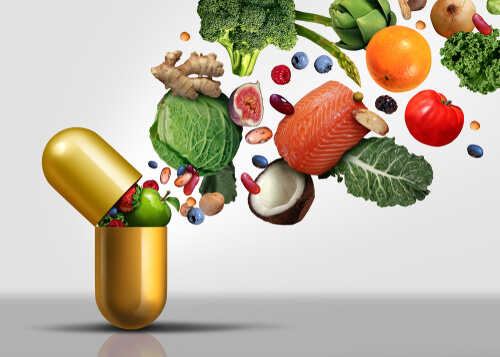When it comes to food health, we are generally obsessed with the food we eat. The focus is to add proper nutrients to diet, making sure you get the right amount of vitamin C, vitamin K, vitamin A, vitamin D, zinc, iron, folates, calcium, potassium, etc. The other worry is about the calories that keep adding in; some people make counting calories a legitimate obsession and work extremely hard to make sure they don’t over eat. This forms the primary thought process of what people consider when choosing their meals. This is undoubtedly important, but not most important. You also need to make sure that you are absorbing all the nutrients you are eating. After all, what’s the point of making sure you have the proper amount of zinc and iron in your diet, if your body doesn’t actually absorb the nutrients. This is where the concept of bioavailability comes into play. If you want to maximize the absorption of your nutrients then you have to pay attention to this important concept.
Bioavailability is the actual proportion of nutrients your body can intake that can be absorbed and made use of. Nutrients essentially fall into one of two distinctive categories – micronutrients and macronutrients. The micronutrients include antioxidants, vitamins, and minerals, while the macronutrients include dietary fats, carbohydrates and proteins. Generally speaking, the bioavailability of micronutrients varies greatly, while the bioavailability of macronutrients is very high, sitting at more than 90%. There are multiple sources and forms for each nutrient, but the specific nutrient’s bioavailability is different.
Poor nutrient absorption will lead to a variety of ailments, like acne, osteoporosis, anemia, and diarrhea. The amount of bioavailability is influenced by maintaining a balanced diet, removing bad eating habits, maintaining an active lifestyle, and dealing with food absorption. You can also improve your bioavailability absorption by eating organic food and eating vitamin supplements. These are all good things to consider when making meals for your kids. So come meal time, consider not just what they’re eating, but how they’re making use of what they’re eating.








